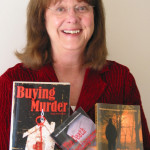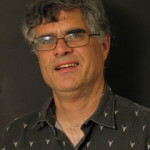GUEST BLOGGERS HARRISON DEMCHECK, PALLAS SNIDER ZIPORYN, ERIC D. GOODMAN, CLIFFORD GARSTANG, TOM WOOD, NANCY LYNN JARVIS, JOSEPH D. HASKE, JOHN VANDERSLICE, LEE SUMMERALL, PETER GORDON
WE CELEBRATE LATE LAST NIGHT BOOKS’ 2-YEAR ANNIVERSARY WITH A REVIEW OF THE PAST YEAR’S GUEST BLOGGERS.
10/1/14 GUEST BLOGGER HARRISON DEMCHICK
FOR LOVE AND MAGIC.
There was a time when I determined, with absolute certainty, that I would never seek publication for my novel, The Listeners.
It wasn’t always that way. I was still in eighth grade when it clicked with me that writing is something one can do for a living, and from that moment on it was more than anything else what I wanted to do. (Continue reading)
 11/1/14 GUEST BLOGGER PALLAS SNIDER ZIPORYN
11/1/14 GUEST BLOGGER PALLAS SNIDER ZIPORYN
Author of the recently published serial novel A Cappella Drug Lord – sometimes described as a cross between “Glee” and “Breaking Bad” – as well as the non-fiction book, The International Student’s Guide to American Colleges.
WHAT AMAZON WON’T TELL YOU
All I wanted to do was write, but I held back.
Before spending the next two months slogging away, I needed to make sure that my story was going to be read. And in today’s competitive world of indie publishing, there are no guarantees. (Continue reading)
 12/1/14 GUEST BLOGGER ERIC D. GOODMAN
12/1/14 GUEST BLOGGER ERIC D. GOODMAN
Author of Tracks: A Novel in Stories and Flightless Goose, a storybook for children.
BREAKING BAD DIALOGUE: BE CAREFUL WHO YOU TALK FOR
You’ve probably heard the advice before: be careful who you talk to. But when dealing with dialogue, it’s even more important to be careful who you talk for.
When putting dialogue into the mouth of a character, it is important to make sure they speak the way that sort of character would really speak. (Continue reading)
 2/1/15 GUEST BLOGGER CLIFFORD GARSTANG
2/1/15 GUEST BLOGGER CLIFFORD GARSTANG
Author of In an Uncharted Country and What the Zhang Boys Know . Editor of Everywhere Stories: Short Fiction from a Small Planet and Prime Number Magazine.
MORE THAN MERE SETTING
When we first study creative writing, we’re told that the principal elements of fiction are plot, character, and setting. My sense is that teachers of writing spend a good deal more time on plot and character than they do on setting. Perhaps that’s justified. After all, the plot of a novel or short story is essential, whether it’s an action-packed thriller or a psychological drama. Without the plot there is no story. And it is widely recognized that plot and character are inextricable. Plot—a convincing plot, anyway—arises from character, and the reader learns about the characters in a work of fiction from observing how those characters react to the complications that develop in the plot.
But what about setting? It’s as hard to imagine a story without a setting as it is to imagine one without characters. (Continue reading)
Author of Vendetta Stone and contributor to the collection of short stories Weird Western Yarns Vol. 1, Western Tales! Vol.3, Tennesseans West, and the Civil War Anthology Filtered Through Time.
TIME ON A TIGHTROPE
Imagine you are high above the crowd, walking a tightrope.
Fans are on the edges of their seats as you put one foot before the other, holding their collective breaths and waiting to see what happens next as you slowly cross the span without a net. You know what you have to do to keep them entranced is a breathtaking combination of focus and balance. One misstep, lean a little too far one way or the other—and SPLAAAT. And the big finish has to be more thrilling than the last; you want them to leave the big top panting and coming back for more. (Continue reading)
 4/1/15 GUEST BLOGGER NANCY LYNN JARVIS
4/1/15 GUEST BLOGGER NANCY LYNN JARVIS
Author of The Death Contingency – Unlikely detective realtor Reagan McHenry uses keen observation, flashes of insight, and sometimes stubborn tenacity to solve murders.
Editor, Cozy Food: 128 cozy mystery authors share their favorite recipes.
THE KINDNESS CONNECTION
The Multiple Myeloma Research Foundation sent out its first newsletter recently. Most of you probably haven’t heard of MM, a plasma cell cancer, because it’s not high profile, but it’s a nasty beast. Until recently, average life expectancy was two years. You can understand why I cried all night when my husband was diagnosed with the disease. (Continue reading)
 5/1/15 GUEST BLOGGER JOSEPH D. HASKE
5/1/15 GUEST BLOGGER JOSEPH D. HASKE
Author of the novel North Dixie Highway and short fiction in Boulevard, Pleiades, and other journals
A significant turning point in my writing occurred when a fiction mentor reminded me that the simple concept of originality is a critical but often overlooked key to great writing. He said, of a story I’d just finished, “Yes, it’s good, very good. Well-written. But it sounds like Proust. Problem is, thousands of competent, contemporary writers sound like Proust.” (Continue reading)
 6/1/15 GUEST BLOGGER JOHN VANDERSLICE
6/1/15 GUEST BLOGGER JOHN VANDERSLICE
Author of the novel Island Fog and over twenty works of short fiction in, among others,Pembroke, The Pinch, Mobius, Seattle Review, Boston Literary Magazine…
WHY DO WRITERS ACT LIKE ROBBER BARONS?
Several weeks ago, at the university where I teach, I noticed something that disturbed and confounded me. The visiting artists brought in by other departments, most notably Music, did a lot more work—both on and off campus—than our visiting writers ever do. (Continue reading)
 7/1/15 GUEST BLOGGER LEE SUMMERALL
7/1/15 GUEST BLOGGER LEE SUMMERALL
Finalist in the 2015 Daphne duMaurier Writing Contest for the romantic suspense novel Game Face
Writing is easy. Good writing is hard. Reviewing is harder.
Learning to write, until recently, was taught in schools. Reports, essays, even poems. I’m not sure it’s still taught, which would be too bad as writing is a discipline, it makes your thinking clearer and more logical. The requirements of written communication force you to look at things, with any luck in new and different ways. It requires focus, clarity and concentration.
But writing fiction is not the same as writing a report or an essay. When you decide to write fiction – unless you write solely for your own amusement, which I understand some people actually claim to do – you enter the gauzy, glittery, treacherous world of entertainment. In this world, there is one overarching rule: do not bore your reader. The late, great Elmore Leonard put it nicely: “I try to leave out the parts people skip.”(Continue reading
 8/1/15 GUEST BLOGGER PETER GORDON
8/1/15 GUEST BLOGGER PETER GORDON
Peter M. Gordon’s poems have appeared in Slipstream, 34th Parallel, the Provo Canyon Review, 5-2 Crime Poetry, Cultural Weekly, and several other magazines and websites. He’s President of the Orlando Area Poets and teaches in Full Sail University’s Film Production MFA program. His collection, Two Car Garage, was published by CHB Media and is available on Amazon.com and other bookselling sites.
08/01/15 – FIVE TIPS FOR MARKETING YOUR POETRY
“I wrote this for myself. Would you mind taking a look at it?”
One of my students at a poetry workshop asked me that recently. I asked, if she wrote it for herself, why did she care what I thought? She said, “Well, I might publish it someday.”
There are as many reasons to write poetry as there are poets. I’ve heard people say they write to express their inner feelings. Some say they write to “deal with” their depression, or understand their romantic relationships, or to heal after a loved one’s death. What I rarely, if ever, hear, is that their goal is communicate these feelings to readers.
When I started to write poetry in earnest a few years ago, I found many wonderful books filled with great advice about how to write better poetry, but none about what to do with your poetry once it was finished. After all, if we’re taking the time to write poetry in the first place, we ought to spend some time helping our poems find their audience. I’ve outlined five tips to help you get started marketing your poetry for publication. (Continue reading)
Gary Garth McCann
First-prize winner for short works and for suspense/mystery, Maryland Writers’ Association, Gary Garth McCann is the author of the novella Young and in Love? and of the novels The Shape of the Earth and The Man Who Asked To Be Killed, praised at the Washington Independent Review of Books. His most recent published stories are available online in Chelsea Station Magazine, Erotic Review Magazine, and in Mobius: The Journal of Social Change. His other stories appear in The Q Review, reprinted in Off the Rocks, in Best Gay Love Stories 2005, and in the Harrington Gay Men’s Fiction Quarterly. See his blogs at garygarthmccann.com and streamlinermemories.com.
- Web |
- More Posts(57)
